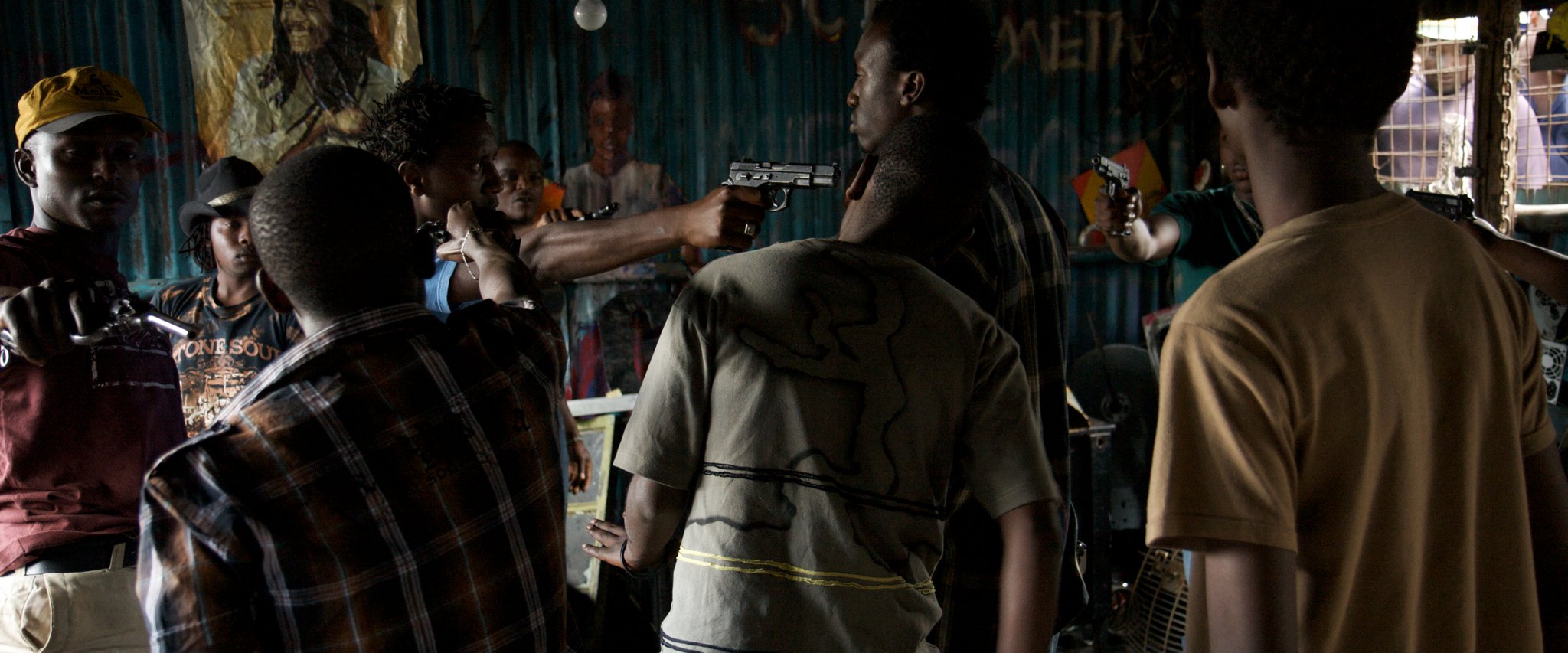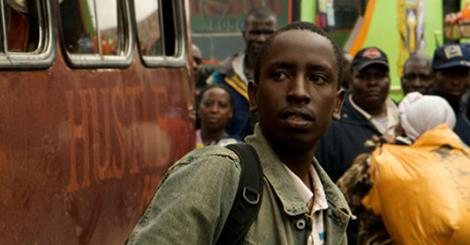By David Pountain
Dir. David Tosh Gitonga
Co-produced by the internationally recognised Tom Tykwer, Nairobi Half Life has a place in Kenyan cinema history as the nation’s first film to be submitted for the Best Foreign Language Oscar category. Had it made the final shortlist of nominees, I imagine the exposure would’ve had a ruinous effect on Nairobi’s tourist industry because this film makes the capital city look positively hellish, especially for naïve outsiders. Everyone is looking for opportunities to screw over everyone else. Crime is an accepted part of the city’s fabric, with crowds of people turning a collective blind eye to thefts in broad daylight. If the police do show up, it’s probably to collect their cut of the profits the gangs are making. Perhaps the most surprising thing about the film, however, is the light-handedness of its approach to some pretty heavy subjects. Rather than aiming for the sort of intense melodrama that may have helped the film get its Oscar nomination, it breezes through its underground landscape of carjackings, prostitution, murder and corruption with a casual bluntness that reflects the practical-mindedness of its inhabitants. The city is how it is, and wallowing in despair won’t change a thing.
We view Nairobi through the eyes of young Mwas, an unfailingly optimistic individual to whom we’re introduced in a rural region of Kenya dreaming about making it as an actor. When a group of performers from the city visit his area, one actor agrees to help Mwas jumpstart his career (for a small fee, of course) and arranges to meet him in the capital. Mwas is barely off the bus before he’s stripped of everything he has and, by the end of the day, we see him locked up in a dingy prison for a crime he didn’t commit, cleaning the most disgusting bathroom I’ve ever seen in a motion picture. It isn’t too long after he gets out the next day that he manages to land a part in a theatre production but, until that job starts to pay, he has to earn a living somehow – and selling car parts illegally stripped from vehicles seems to be the best job he can find.

David ‘Tosh’ Gitonga may not be the most meticulous of image-makers but there’s a naturalistic warmth to his often documentary-like footage of the bustling city. Gitonga fills each frame with a flavourful array of colours that ensure that even when he’s making Nairobi look bad, at least he’s also making it look pretty. Nonetheless, it’s a little too evident that this is the director’s first feature film. He seems to lack the confidence to pursue his own ideas as a visualist, using the impressive script as a crutch, rather than the foundation for a truly rich cinematic vision. As a result, the film feels dramatically anaemic at times and overly reliant on dialogue to drive the plot forward.
But that’s not to discredit Gitonga’s minimalist approach completely. His reluctance to put much meat on the skeletal screenplay finds some defence in the parallels drawn between Mwas’ life as a crook and his life as an actor. For his first theatrical role, Mwas is cast as an impoverished criminal who breaks into the houses of rich people – not to take things but to rearrange the furniture, marking his presence in their homes. It is a form of intimidation meant to draw attention to Nairobi’s great disparity in wealth but, in his day to day life, Mwas and his friends don’t have time for such ideologically driven, big-picture political statements. They never stop to ponder the wider implications of their actions or consider the societal factors which prompted them towards this way of life. They steal so they can live – simple as that. So perhaps it makes sense for Gitonga to present their activities with simplicity.

Still, this partial justification doesn’t account for the greater visceral impact that a more involved approach to directing would’ve allowed for. As it stands, Nairobi Half Life has neither the gritty realism nor the kinetic thrills that its individual ingredients suggest but it does have a vivid, unique sense of place that makes it difficult to dismiss. I have no doubt that Gitonga will sharpen and embolden his craft with more experience but, in his debut effort, he’s given himself an excellent blueprint to work from and he’s given us viewers a highly memorable, stimulating new incarnation of the street-level crime film.
To watch Nairobi Half Life and many other gems from the world of cinema, visit FilmDoo today!





